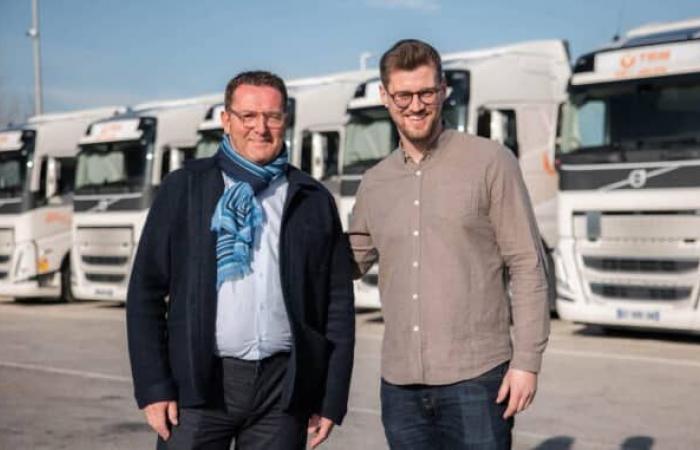Based in Haute-Garonne, the Bioret group includes six transport companies. Its manager Serge Bioret tells us about his development opportunities, the current conditions of his market and his desire to integrate his activities into sustainable development.
Transportation Info : What is the genesis of the Bioret group? ?
Serge Bioret : After 25 years of experience in transport as an employee and executive of a large French company, our group’s adventure began with an entrepreneurial project with the takeover of Transports Pech in 2010. A year later, the administrator who managed the recovery of Trans Euro Route contacted me to offer to buy this structure, which became TER Transports.
Subsequently, nine years ago, with my brother Pascal, we created TBR in Nantes. A year later, the fleets of the three companies, Pech departing from the South-West, TER departing from the South-East and TBR departing from the West, converged on the Paris region thanks to the birth of In’Terpech, structure at the head of which we place Clément Escarnot, a young person who did his work-study program at Transports Pech. In 2019, we launched the transport company Bag Trans, before taking over, four years later, TSF Provence. Since then, we have developed these two small entities with around twenty trucks.
“When trade negotiations succeed, they fall short.”
We have been able to develop the group thanks to the quality of Transports Pech, while strengthening our privileged relationships with the historic customers of this company dedicated to the traction operator business for express operators. This activity represents 80% of our turnover, the remaining 20% corresponding to chartering. Upon arrival, we employ 750 people and we have 500 engines, to achieve 100 million euros in turnover.
IT : How do you characterize the market in which you operate? ?
SB : After riding the covid wave between 2020 and 2022, benefiting from very strong activity, the year 2023 brought us back to earth. The 2024 financial year got off to a difficult start, in a very tense market context, with prices melting like snow in the sun. This comes at a time when we would need a price increase in view of the increase in our costs, such as the 20% increase in salaries in two years and the growth in the price of our materials by 25% over this same period.
When trade negotiations succeed, they fall short. We need + 7%, while we have managed to painfully pass 1.5 to 2% in 2023 for 2024. To succeed in the TRM, we must focus on quality and ever more efficient management. fine costs. We are approaching this period with pragmatism, paying attention to time management and fuel savings.
“In our energy mix, we focus on electricity, HVO and CNG.”
We will undoubtedly experience a year of 2024 of small recession, with activity rotating between – 1 and + 1%. This is the most complex period that I have had to understand in terms of price tension and the need for profitability. It will be necessary to be close to the costs, to the customers, and then to ensure collections. I’m expecting a rocky end to the year.
IT : How do you approach the subject of energy transition ?
SB : My son Victor joined me a little over a year ago to give the group sustainable development impetus. We had the chance to support our client DHL Express, who wanted to green his transport plan between Marseille and Lyon. In our energy mix, we rely on electricity, HVO and CNG. For the moment, electric only represents 2 to 3% of our fleet, 4 to 5% for HVO and 1% for CNG.
For the electrical part, following tests carried out with Volvo Trucks, we are satisfied with the performance of the vehicles, knowing that the main difficulty is linked to the charging infrastructure.
“With Tred Union, Victor can interact with future transportation leaders.”
In addition to the difficulty of finding the terminals, the reliability of this technology is not always there. The advantage of this strategy is that we are one step ahead of our colleagues; the disadvantage is the risk that this involves, since it involves significant financial resources; we are talking about more than 4 million euros.
IT : Why did you join the Tred Union group? ?
SB : The number one objective of this membership is to prepare Victor’s arrival in the company by allowing him to join Tred Jeun, in order to be able to interact with future transport leaders.
In addition to preparing for our family transfer, it is about involving our employees in discussions with their counterparts in the various HR, management and training departments among our colleagues. Afterwards, on a commercial level, if we can join hands among ourselves and indirectly recover business, we will naturally be interested. Finally, we can also benefit from optimizing our purchases.
Arnaud Ilié







